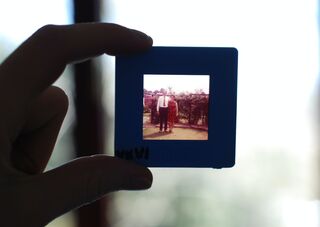Decision-Making
New Research Shows Why Your Decision-Making Could Be Flawed
Knowing how your brain values a situation shapes how you decide to remember it.
Posted October 23, 2020 Reviewed by Devon Frye

When I first set foot in Venice, I was dazzled by the beauty and culture—the aroma and flavor of Italian pastas, the priceless antiquities, the architectural design of the ancient buildings, and the romantic gondolas floating in the canals. After a few days, I started to notice cracks in the pavement, buildings marred by graffiti and trash in the canals. I had my fill of pasta, heat, and tourists. By the end of the week, my dazzled perspective of the city had soured.
What changed on my Italian vacation? Venice was still the same romantic, beautiful place when I left that it was when I arrived. All that had changed was my narrowed perspective. And if my perspective had shifted, that means I have the power to change it back by choosing the view I wanted to take of the city. You, too, probably have encountered bad weather or an argument at the end of a vacation that ruins your memory of the entire trip.
New research suggests my last negative perspective of Venice—instead of the entire experience—would likely dwarf my early positive memory and continue to be the deciding factor in how I remembered it and whether I would repeat it. This pattern has to do with the inter-workings of our brain.
The study, in the Journal of Neuroscience, shows that the tendency to focus on the ending of a situation may stem from how the brain encodes the value and temporal profile of an experience. The brain keeps track of the value of an experience as well as how it unfolds over time; overemphasizing the ending may lead to poor decision-making.
Cambridge researchers Martin Vestergaard and Wolfram Schultz explained:
“Our ability to evaluate an experience retrospectively is important because it allows us to summarize its total value, and this summary value can then later be used as a guide in deciding whether the experience merits repeating, or whether instead it should rather be avoided.”
Vestergaard and Schultz created a computational model explaining functional MRI recordings in 27 male volunteers who chose between two streams of coins varying in size where larger coins have a higher value. The model revealed a discrepancy between the true value of an experience—how much money was in the stream—and the value volunteers placed on how it developed. Participants disliked when the coins decreased in size, even if the stream was worth more money overall, resulting in their making the wrong decision.
The findings from the model tracked with brain activity data from fMRI. During the task, the amygdala encoded the actual value of a choice, while the anterior insula encoded dislike towards a negative ending—in this case, if the coin stream decreased in size. This representation can overpower information from the amygdala, leading people to undervalue experiences that end poorly despite starting well.
The best decision-makers had the strongest representation in the amygdala, indicating an ability to disregard a lesser ending and choose the better option. One of the many fallacies that lead us to make poor decisions is called the “banker’s fallacy”—the tendency to focus on short-term growth at the expense of long-term value. This effect leads to the brain’s preference for happy endings. One part of our brain—the anterior insula—discounts the overall value of an experience as it unfolds over time if the experience contains a series of negative events.
The researchers conclude that the anterior insula in the human brain marks down the overall value of an experience as it unfolds over time if the experience entails a sequence of predominantly negative contrasts. By contrast, the amygdala encodes the overall value accurately.
The takeaway is to check under the engine and see if your “decision-maker” is defective or if it considers the full picture of an experience—whether it's a relationship, vacation, or job situation. When your brain has an unwarranted preference for happy endings and you assign a disproportionate weight to a final experience versus the full trajectory, your decision-making could be biased. It’s important to make sure decisions consider the overall big picture of a series of events, not just how situations turn out in the end.
References
Vestergaard, M.D, & Schultz, W. (2020). Retrospective valuation of experienced outcome encoded in distinct reward representations in the anterior insula and amygdala. Journal of Neuroscience, 19. DOI: https://doi.org/10.1523/


